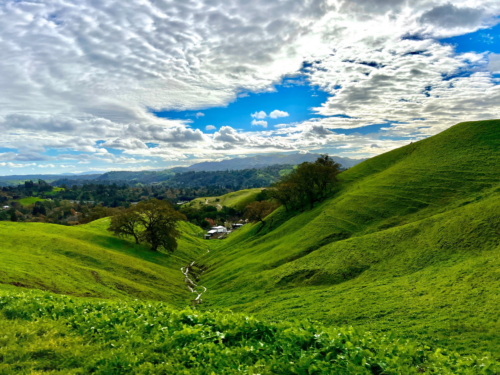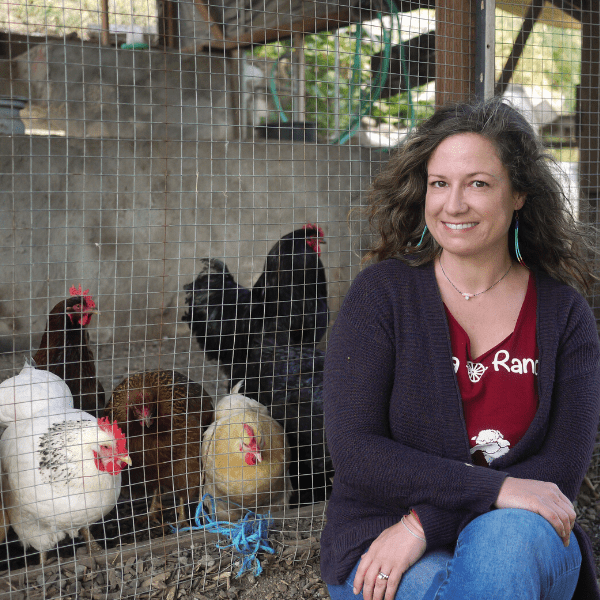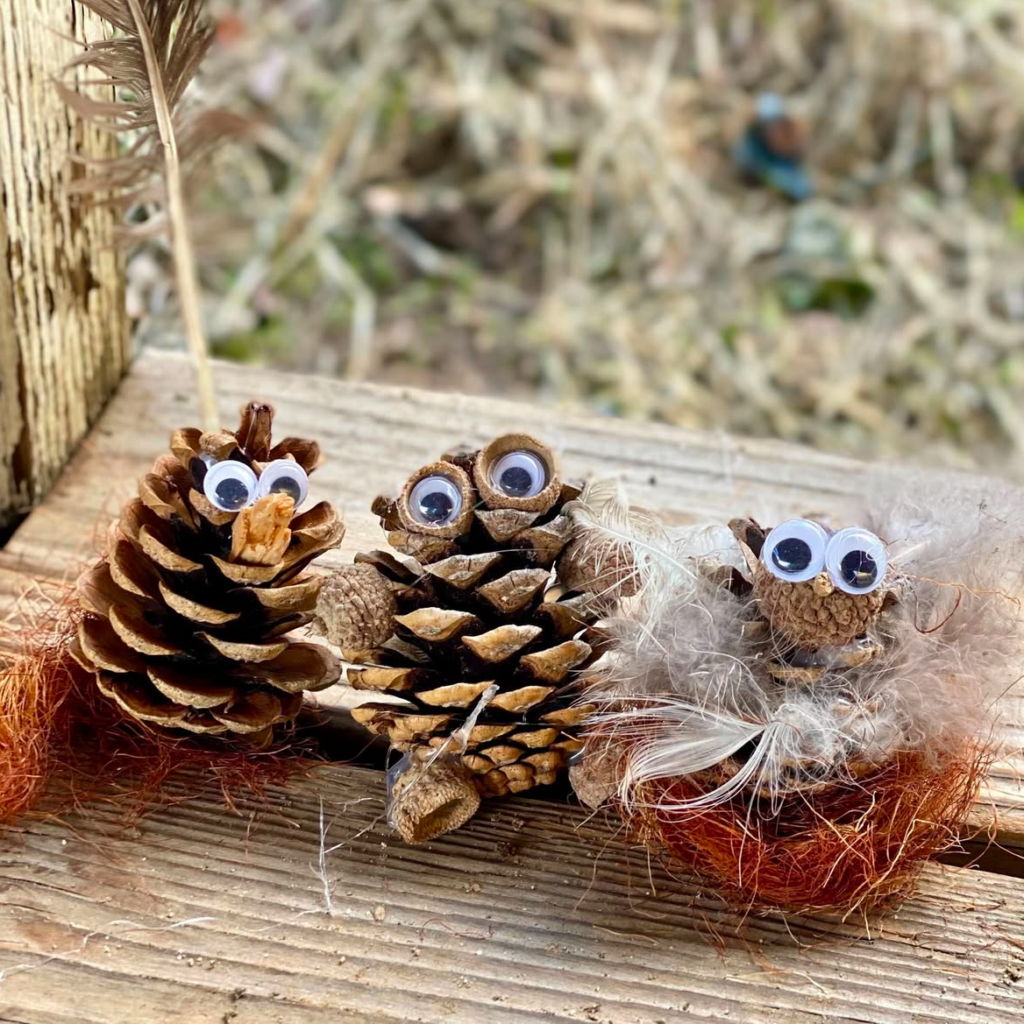Outdoor learning for diverse needs
Where nature and animal connections foster social-emotional growth, creativity, and confidence, helping neurodiverse and special needs students develop key skills and thrive in a supportive, engaging, and nurturing environment.
Supporting social connection in nature
Since 2016, Sienna Ranch has partnered with the Special Education Enrichment Development Foundation (SEED) of Lafayette to offer a special needs social class for 2nd–6th grade students. Our goal is to provide nurturing, engaging, and fun social experiences that promote growth, independence, and meaningful connections.
We believe in a program that:
- Fosters a lifelong, positive association with peers, the outdoors, and animals
- Leverages our unique Ranch setting to enhance experiences through outdoor activities and hands-on projects
- Maintains small class sizes to ensure individualized attention and collaboration with aides to address challenges
- Encourages students to build meaningful relationships in a semi-structured, stress-free, and creative environment
- Promotes a deeper connection with nature by interacting with our animals and exploring the outdoors
- Instills an appreciation for nature, physical activity, and the power of learning outside
- Cultivates positive, reciprocal relationships among peers in a safe, accepting environment
- Nurtures kindness, inclusivity, and a sense of community
At Sienna Ranch, we maximize the benefits of learning at an educational ranch, spending time outdoors each day exploring our animals, garden, and land. Our curriculum is designed to tie directly to the Ranch experience in imaginative, fun, and effective ways, ensuring that every child thrives in an environment of acceptance and growth.
Social Group details
Student Requirements for SEED Social Group

At Sienna Ranch, we welcome students to our Social Group who are ready to engage in hands-on learning and outdoor experiences. Students in this class are:
- Comfortable wearing closed-toe shoes, such as tennis or sturdy hiking shoes (no rubber shoes like Crocs)
- Enthusiastic about getting a little dirty and being outside in all weather
- Able to stay with a group with no more than two adult prompts
- Curious and excited to push themselves in a new, outdoor learning environment
- Able to communicate their needs effectively (e.g., bathroom requests, needing space)
- Able to appropriately express themselves and protest using words or a communication device
- Willing to work with staff if behavioral challenges arise
- Capable of following verbal directions in outdoor settings (e.g., “We’re going to the buckeye tree,” or “Please walk in this outdoor space”)
- Gentle with both people and animals
- Able to walk on uneven, unpaved terrain
Note on Supportive Aides
For students who may need additional support, a 1:1 aide is required to ensure their success in the class. If your child has a 1:1 behavioral aide in other settings, we ask that they attend together—extra support in our outdoor classroom helps set students up for success. Please note that we typically do not allow parents or guardians to serve as aides.
Our Daily Focus at the Ranch
- Each day at the Ranch, we strive to create a positive, nurturing environment where students:
- Engage in at least one physical activity
- Complete at least one hands-on activity
- Engage with peers in a positive, inclusive way
- Practice social skills and appropriate negotiation with both peers and adults
- Practice effective communication, including both verbal and non-verbal forms
- Maintain attention for short periods of time, focusing on peers, adults, and activities
- Interact with one of our beloved Ranch animals
- Participate in a group game outdoors
- Engage in at least one physical activity
To register your student for the SEED Social Group class, you will first place them on the pre-waitlist through the Active registration system.
Returning Students:
Families on the pre-waitlist will be contacted by the Sienna Ranch admin team regarding your registration.
New Students:
New families will be contacted by the admin team to schedule a tour of the ranch. This ensures the program is the right fit for your child. After the tour, we will finalize your registration and collect either a deposit or full payment.
Using Charter School Funds?
If you plan to use charter school funds for tuition, please visit our Homeschool Page for detailed instructions on how to purchase programs and use your vouchers.
Have Questions?
For more information about our programs, check out our FAQ Page for answers.

Lindsay Shannon has over 18 years of experience working with children ages 2-17 in a variety of settings, including schools, preschools, early intervention programs, daycares, IEPs, private family consulting, and outdoor education programs. Prior to specializing in Autism, Lindsay worked with teenagers with Severe Emotional Disturbance (SED). Lindsay’s extensive experience includes, but is not limited to, creating behavior plans, developing self-help and school goals, providing parent and staff training, facilitating peer playdates, and writing ABA curriculum. She is skilled in behavior modification, designing teaching tools using a variety of visual and behavioral techniques, and teaching age-appropriate skills. Additionally, Lindsay supports home programs, PECS, school support, food flexibility, sleep issues, rigidity, and self-injurious behavior techniques. She also focuses on fostering joint attention, flexibility, and creating structure and predictability using visuals, as well as working on motor skills, speech/language, and OT and sensory regulation strategies. She has been leading the Sienna Ranch Social Group since 2016, helping students develop essential social skills and independence.
Some students have successfully transitioned from our SEED Social Group into other Sienna Ranch programs. If you think your student might benefit from exploring these opportunities, we recommend giving us a call to discuss your child’s learning needs and interests. Our team is here to assist you in finding the best fit and ensuring a smooth transition. We’ll work with you to identify the right program that supports your child’s growth and development before you sign up.
Find the ideal class to support your student’s needs.

